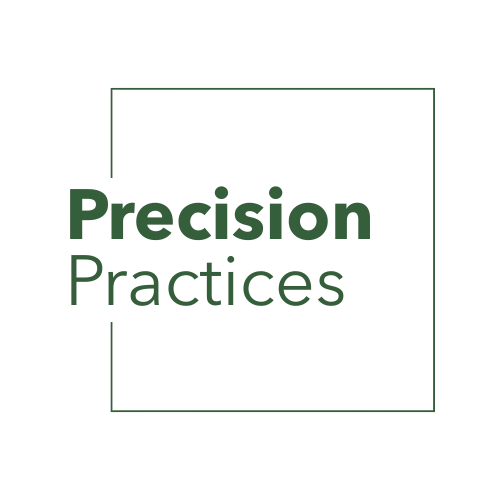AI Isn't Your Strategy. It's Your Loudspeaker
But Is It Amplifying The Right Message?
Picture this: You’re at a networking event, and someone corners you with their “revolutionary” AI implementation. They’re practically vibrating with excitement about their new chatbot that can write blog posts in seventeen different voices. Meanwhile, their actual clients are still waiting three days for a simple project update email.
It’s like watching someone install a Ferrari engine in a horse-drawn carriage – impressive horsepower, but a questionable foundation.

The “Content Machine” Mirage: When More Becomes Less
We’ve entered the era of digital hoarding. Firms are pumping out AI-generated content like it’s going out of style, turning every webinar fragment into a LinkedIn symphony, and creating enough blog posts to wallpaper a small office building. The metrics look fantastic on paper – output is through the roof!
But here’s what’s happening behind the curtain:
Your intake process still requires clients to fill out forms that would make the IRS weep with joy. Your client experience has more plot twists than a soap opera, and about as much consistency. Your team is producing content about “synergistic solutions” while your actual solutions are about as synergistic as oil and water.
We’ve become masters of amplifying the echo, not the original voice.
The Uncomfortable Truth: You Can’t Automate Wisdom
Here’s where it gets awkward – and I mean really awkward, like realizing you’ve been muted on a Zoom call while passionately making your point for five minutes.
AI is phenomenal at taking clear instructions and executing them with the precision of a Swiss watchmaker. But ask it to figure out what your firm actually stands for, or why clients should choose you over the competition, and you’ll get responses more generic than elevator music.
That deep, soul-searching work? The kind where you admit that maybe your “unique value proposition” sounds suspiciously like everyone else’s? That’s still firmly in human territory. And increasingly, it’s the homework most of us are trying to skip.
So instead of wrestling with “How do we actually create value that matters?”, we’re asking, “Can AI make our About page sound less boring?”
Instead of confronting “Why do our best prospects ghost us after the first meeting?”, we’re wondering, “Will an AI SDR tool fix our conversion problem?”
It’s like trying to solve a relationship issue by changing your ringtone.
Strategy Isn’t What You Say – It’s What Your Systems Allow
Here’s a truth that might sting a little: Your strategy is only as good as your weakest operational link. You can have the most eloquent mission statement in the world, but if your systems are held together with digital duct tape and good intentions, AI will just make that messiness… louder.
Think of it this way: AI doesn’t just turn up the volume – it turns up the everything. The brilliant insights get amplified, sure. But so do the mixed messages, the process gaps, and that one workflow that only Janet understands and she’s been threatening to retire for three years.
What Really Moves Mountains (Not Just Molehills)
At Precision Practices, we’ve seen this movie before. The firms that transform their businesses with AI aren’t the ones that jumped on the latest tool. They’re the ones who did the hard, unglamorous work first – the kind of work that makes you question everything you thought you knew about your business.
The real game-changers:
Craft messaging that doesn’t sound like it was written by a committee of consultants. If your value proposition requires a decoder ring, AI will just encode it faster.
Align your sales and marketing so they’re having the same conversation. Nothing says “professional” quite like your sales team contradicting your marketing materials in real-time.
Map every touchpoint in your customer journey and identify where people are quietly giving up. Those friction points? They’re like compound interest, but in reverse.
Fix the operational hiccups that everyone just works around. You know, the ones that make your team feel like they’re solving puzzles instead of serving clients.
Only then – only then – do we introduce AI tools that amplify clarity instead of chaos.
The Bottom Line: AI Amplifies Who You Already Are
Here’s the beautiful, terrifying truth: AI won’t make you something you’re not. It will just make you more of what you already are, faster and at scale.
If you’re clear, focused, and genuinely valuable to your clients, AI will amplify that brilliance. If you’re confused, scattered, and hoping volume will compensate for substance, well… AI will amplify that too.
The question isn’t whether AI will transform your business. It’s whether you’re ready to be honest about what you’re actually transforming it into.
Ready to Build Something Worth Amplifying?
If you’re done with the digital equivalent of shouting into the void and want to create something genuinely worth scaling, let’s talk. Not about AI tools (at least not yet), but about the strategy and systems that will make those tools actually matter.
Because the firms winning with AI aren’t the ones with the fanciest tech stack. They’re the ones who knew exactly what they wanted to amplify before they turned up the volume.
Let’s talk about building something worth broadcasting.
- 857.540.5686
- Boston, MA
- Mon-Fri 9:00AM - 5:00PM
- Privacy Policy
